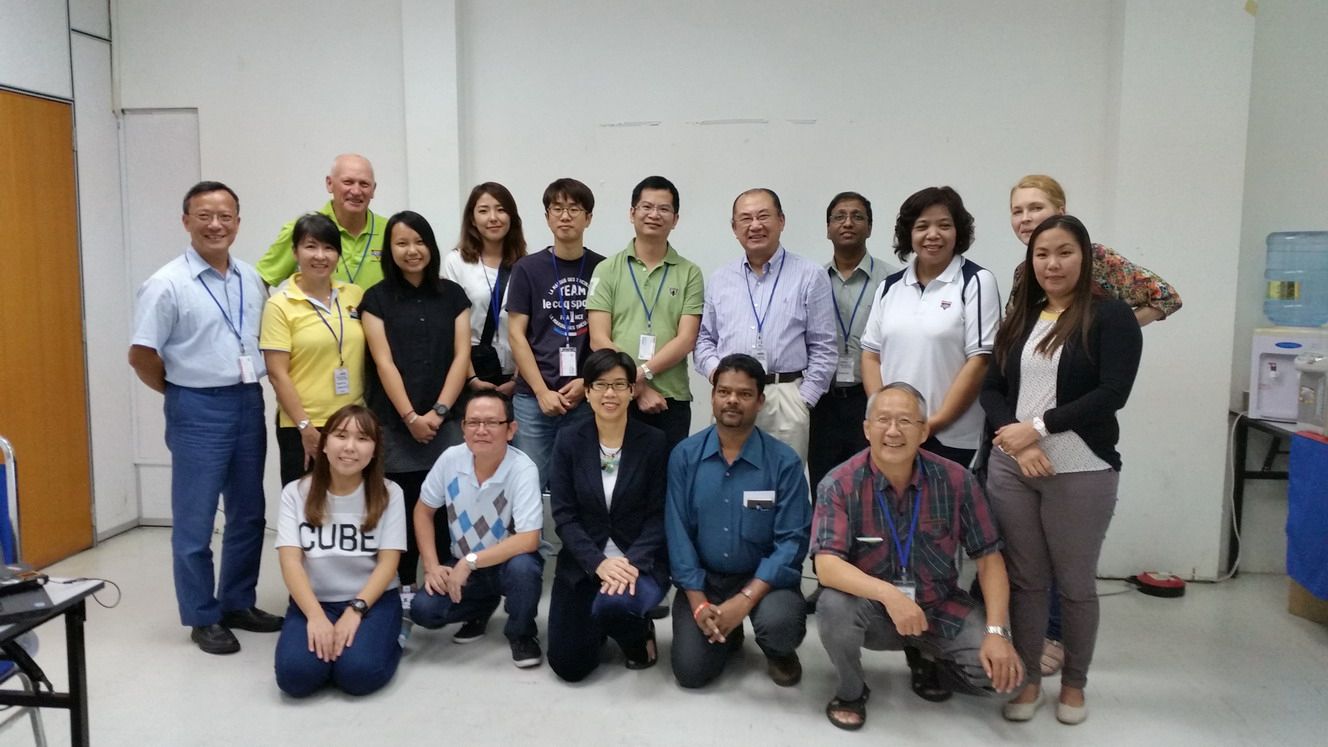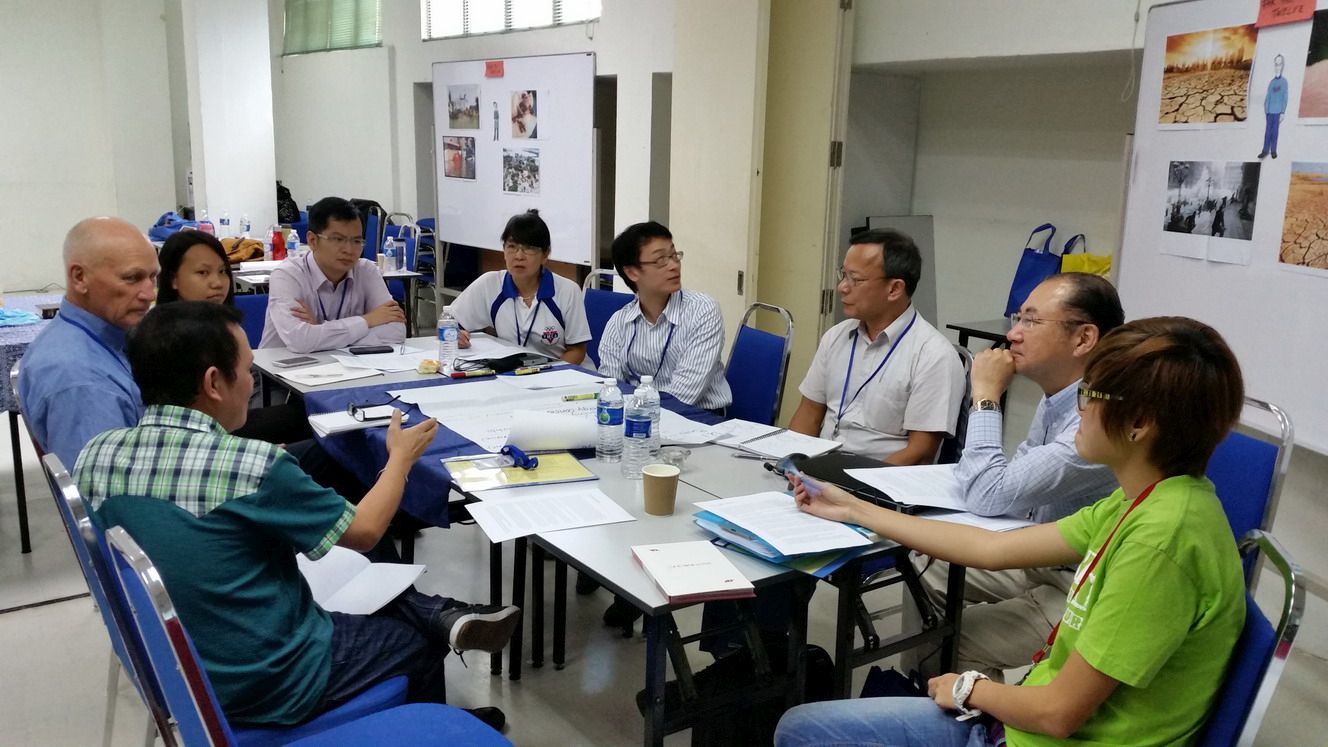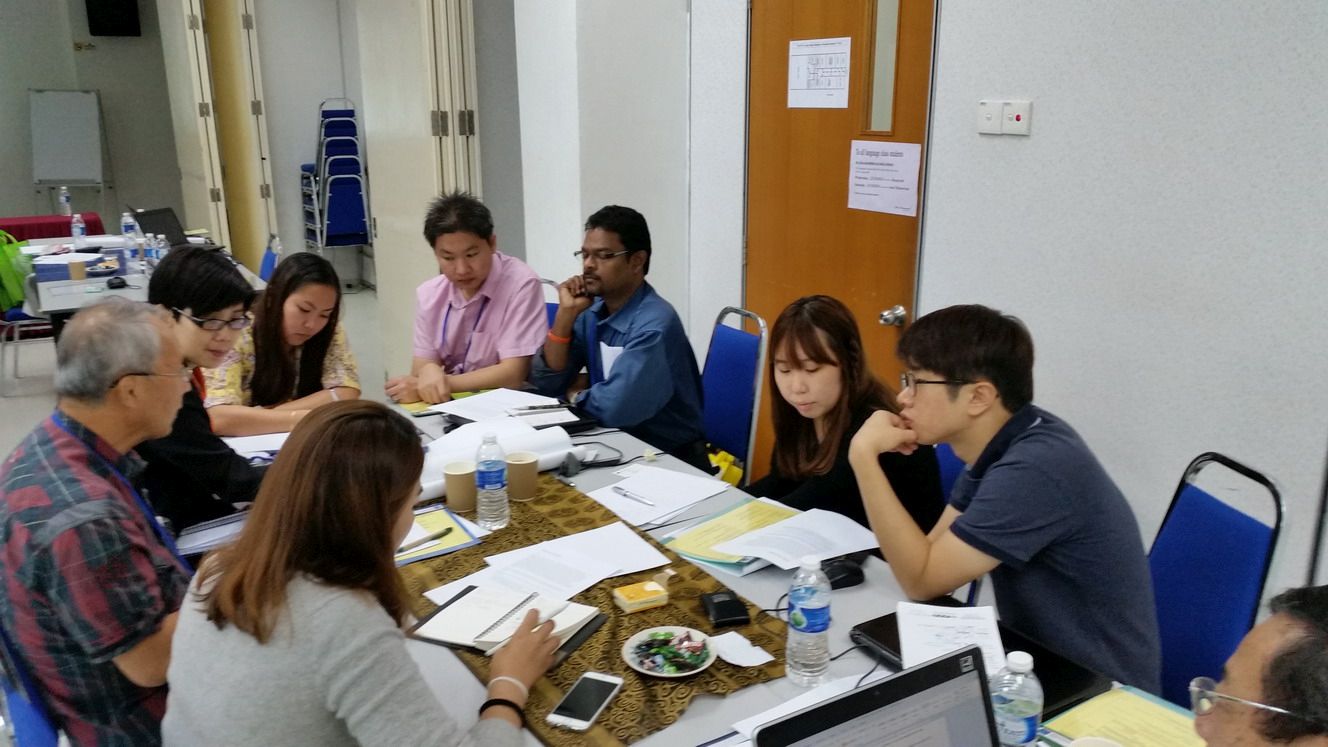APAY Regional Climate Change Conference, Oct 24-27, 2014
Last Updated (Wednesday, 03 December 2014 10:59)

APAY Regional Climate Change Conference
The APAY Regional Climate Change Conference was held during October 24-27, 2014 at Kuala Lumpur YMCA, Kuala Lumpur, Malaysia. About 20 YMCA leaders representing different countries of the Asia and Pacific, who have special interest in climate change participated at the conference. Kohei Yamada, General Secretary of APAY inaugurated the Conference, Dr. Jai Chang Park, former President of the APAY, presented an overview of the climate change issues of the world today at the opening session. Annegret Zimmerman, Senior Policy Advisor of Bread for the World, Germany, Colin Lambie from Australia, Chairperson of the Green Team, Y’s Men International, Gurmeet Singh a leading environmentalist of Malaysia, Lim Li Lin from Third World Network were the resource persons of the Conference. The participants dwelt on action plans for the YMCAs to combat climate change and prepared a statement, Kuala Lumpur Declaration, as the position paper of APAY in terms of climate change at the conference. The National Council of YMCAs of Malaysia and the Kuala Lumpur YMCA hosted the conference.
The Kuala Lumpur Declaration
Preamble :
The Asia and Pacific Alliance of YMCAs comprises the 27 YMCA movements of the Asia Pacific region. Around twenty members representing various YMCA movements from this region came together for the APAY Conference on Climate Change in Kuala Lumpur, Malaysia, from 24 – 26 October 2014.
The APAY Conference on Climate Change was an important opportunity for participants to delve into the different aspects of climate change, examine the diverse environmental activities of the YMCAs of our region, and finally formulate an APAY position paper on climate change.
Our Learning and Concerns :
During the conference we learnt that, as the Intergovernmental Panel on Climate Change (IPCC) has concluded, present day climate change is attributed directly or indirectly to human activity that alters the composition of the atmosphere due to accumulation of greenhouse gases. A major cause of the global increase in carbon dioxide concentration is the excessive use of fossil fuels.
Climate change has led to rises in sea level and more extreme weather (including rainfall variability, frequency and the associated intensity of storms etc.), as well as the negative impact on our health, ecology, environment and the economy. It is unjust that they who suffer the most from climate effects today, and even more in the future, have contributed the least to them.
In view of the increased volume of mass global tourism, the YMCA can play a pivotal role promoting, organizing, and implementing alternative tourism in its hostels, hotels, tourism services and products that is climate-sensitive.
We, individually and collectively, need to take urgent action in limiting carbon emissions, and building up our resilience to climate change. Inter-governmental discussions are to be encouraged that result in appropriate and fair mitigation of and adaptation to climate change.
Good practices are already taking place in a number of YMCAs for climate change mitigation and adaptation, and these experiences need to be shared with and replicated in other YMCAs.
Climate change should be a major concern for the international community including, the YMCA.
Our Vision
The Asia and Pacific Alliance of YMCAs recognizes the scientifically analyzed human factor in climate change, and understands the scale and urgency of the problem that it has to help address immediately. The APAY is committed to reducing carbon emissions through various environmental activities in all national YMCA movements, ecologically sustainable programs including community-based tourism, raising awareness of climate issues, and developing organizational capacity to maximize our efforts to counter climate change.
Challenge 21, the most recent interpretation of the mission statement of the YMCAs, calls us to “defend God’s creation against all that would destroy it and preserving and protecting the earth’s resources for coming generations”. This reminds us of our responsibility as members of the YMCA community to work towards restoration of God’s creation. We envisage that all YMCAs shall be climate-sensitive and committed towards building sustainable communities with a decreased climate change impact. We also commit to work towards limiting global emissions to keep the Earth’s warming to no more than 2 degrees above pre-industrial levels.
Call for Action
We hereby urge the YMCAs of all levels of our region…..
…..to conduct a carbon audit of their respective YMCAs, and take effective measures to reduce carbon emissions by lowering energy consumption, preventing energy waste, promoting recycling and re-using, sharing facilities, and promoting and utilizing renewable energy when and wherever possible.
…..to raise awareness about climate change by making their YMCAs more green, mobilizing the youth to engage in green-conducive activities, forming Green Teams to co-ordinate, promote, and enhance green initiatives, promoting ecologically sustainable tourism, holding conferences online to limit or even avoid travelling.
…..to mobilize funds for environmental projects and make environmental technical knowledge and wisdom easily available.
…..to establish networking and collaboration with relevant governments and climate change- related organizations.
We call for the genuine involvement of YMCAs in do-able action programs, working for and with poor and marginalised communities who are victims of climate injustice, and supporting grass-roots communities to build resilience to climate change.
We shall promote and implement sustainable and climate-sensitive tourism through GATN that is community-based, in contrast to commercial tourism that is heavily dependent on fossil fuels use.
We will involve ourselves in study and research on climate change issues and challenges, assisted through collaboration with organizations and academic institutions that are specialists in the area.
We also commit to change and condition our own lifestyles to be more environment-friendly.
We see as crucial that the APAY Resource Group on Climate Change, Green Team, and GATN are empowered to be the voice for climate change victims through active involvement in climate change advocacy and lobby initiatives.
Finally, we envision that all YMCAs shall commit themselves towards becoming carbon neutral by 2025.








